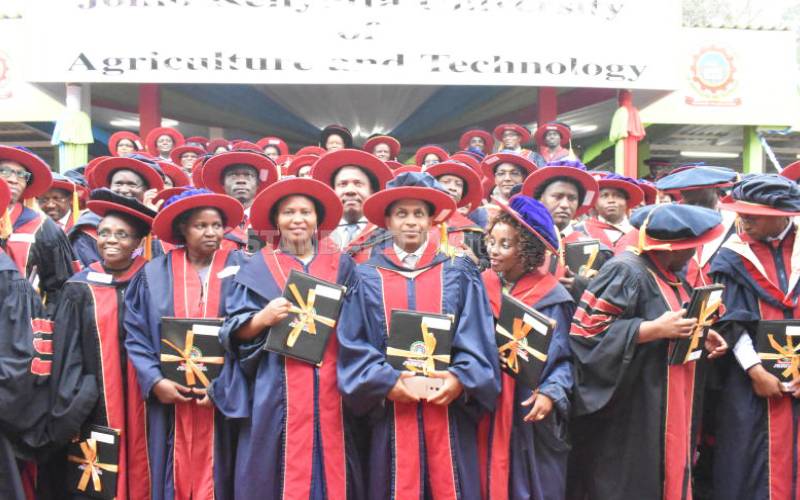×
The Standard e-Paper
Fearless, Trusted News

Jomo Kenyatta University of Agriculture and Technology (JKUAT)awarded degrees to 118 doctoral candidates in its latest graduation and some quarters are making loud noises. The critics are basing their arguments on the sheer number of graduates rather than the process of teaching, examination and awarding of Degrees.